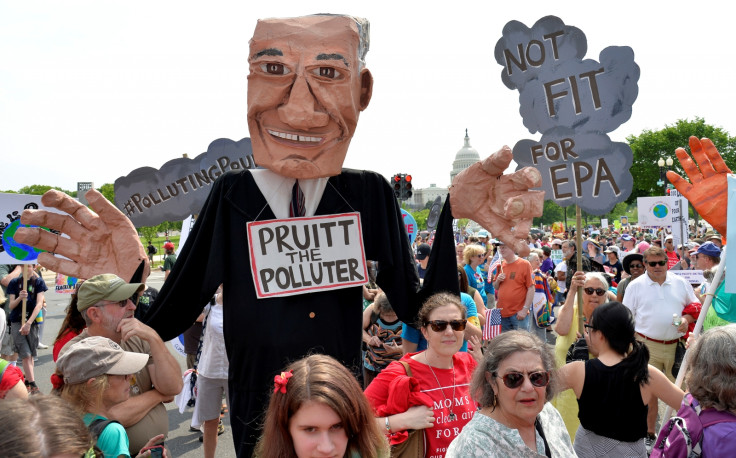White House considers exiting Paris Agreement on climate change as early as next week
There are concerns the pact will make it difficult to repeal US climate regulations as Trump promised.
The White House may pull the US out of the Paris Agreement on climate change as soon as next week, sources close to decision makers within the White House say. US President Donald Trump originally promised to withdraw from the agreement as a presidential candidate.
According to the Huffington Post, those within the administration are divided about what to do about the Paris Agreement. The historic pact joined 195 countries, including the US and China, in an effort to reduce greenhouse gas emissions and combat climate change.
Trump's daughter and adviser Ivanka Trump, Secretary of State Rex Tillerson and Energy Secretary Rick Perry are said to want to renegotiate the US terms. Meanwhile, chief White House strategist Steve Bannon and Environmental Protection Agency chief Scott Pruitt are pushing to pull the US out.
The division reportedly lies on the interpretation of a phrase in a single provision of the agreement, The New York Times reported. The provision, Article 4.11, states that a nation "may at any time adjust its existing nationally determined contribution with a view to enhancing its level of ambition".
According to the Times, the question is whether member nations can adjust its progress upward or whether they can weaken their commitment without violating the terms of the agreement. Bannon and Pruitt argue that nations cannot weaken their commitments so the US should withdraw, while the opposing side argues the agreement does allow for downward adjustment and the US should stay.
The two sides came head to head during a meeting on Thursday (27 April). During the meeting, the White House Counsel's Office suggested that Pruitt and Bannon might have the law on their side, Politico reported. The argument led to another meeting on Monday (1 May) that included lawyers from the White House, the Justice Department and the State Department.
Andrew Light, a senior fellow at the World Resources Institute who helped negotiate the Paris Agreement, told The Hill that the emissions cuts are not legally binding, therefore there is no legal issue.
"Revising downward is definitely not in the spirit of the agreement ... but the fact of the matter is that the targets are not legally binding," Light said. "So we can all object, but there's nothing we can do about it."

The Hill reported that the administration is also concerned that remaining in the agreement would give environmentalists legal fodder to block the president from repealing climate regulations such as the Clean Power Plan.
In 2015, the Justice Department told the Court of Appeals for the District of Columbia Circuit that stopping the regulation would damage the US diplomatically. According to The Hill, the court decided not to block the rule, but the Supreme Court paused it on appeal. The Trump administration is now working to repeal it.
Trump announced over the weekend that he would make his decision about America's involvement in the agreement in the next two weeks, HuffPost reported. However, at a rally on Saturday (29 April), the president called the agreement "one-sided" and used it as an example of a deal in which "the United States pays the costs and bears the burdens while other countries get the benefit and pay nothing".
Sources have said that the administration has yet to make a decision.
© Copyright IBTimes 2025. All rights reserved.






















